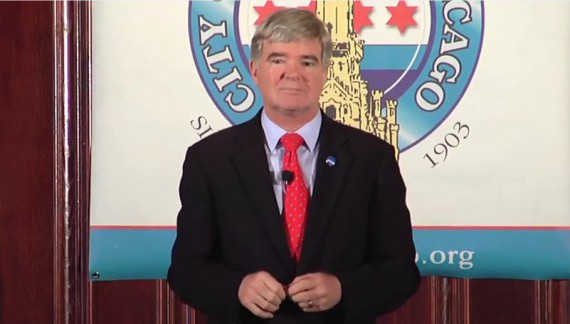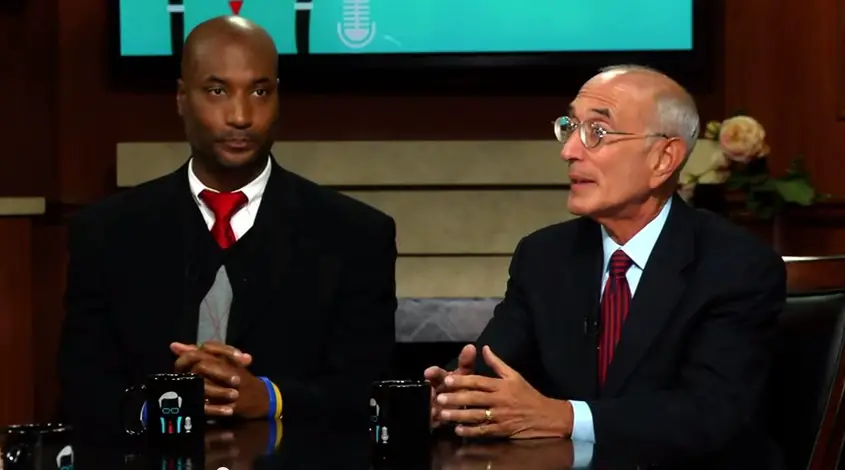A tough year for the NCAA just got worse.
In a historic decision released on Friday, Judge Claudia Wilken of the Northern District of California ruled that the NCAA could not stop its member institutions from paying student-athletes and that schools could also grant athletic scholarships that covered the full cost of attendance without fear of breaking NCAA rules. The decision was actually better for Mark Emmert and Co. than they expected, since Judge Wilken upheld the NCAA’s ban on athletes marketing themselves, saying that it kept the competitive balance intact.
Still, with so many other high-profile lawsuits pending against the NCAA, this was not a good start — and while it doesn’t necessarily create a concrete legal precedent in other district courts, there is no doubt that the standard-bearers of amateur athletics don’t feel quite as invincible as they did a few years ago.
That a ruling went against the NCAA was not unexpected by anyone who had been following the trial these past few months, since the NCAA’s main argument seemed to come down to, “It’s the way we’ve always done it.” I’ll spare you all the legal jargon, but it’s important to realize that one of the central issues in this case was the question of antitrust law.
There are still several other lawsuits pending against the NCAA, so the question is not yet settled, but many of the other cases focus on the fact that by not offering scholarships to cover the full cost of attendance, in effect colluding to keep labor costs low, the NCAA broke several antitrust laws that were designed to create an open and competitive labor market.
While the question of antitrust law is still very much up in the air, just the fact that these questions are being asked should tell you that the era of the student-athlete is over, and with it, all the liability protection the NCAA holds on to for dear life.
Once the issue of money turns into an issue of wages, then the public (and, more importantly, the court system) will begin to see athletes not as students playing an extra-curricular activity in which the schools themselves have no responsibility, but as employees who are generating revenue for said schools, and who can draw workers’ compensation in case of injuries incurred while playing sports.
This, of course, was the entire reason for the coining of the phrase ‘student-athlete.’ According to Taylor Branch, author of “The Cartel: Inside the Rise and Imminent Fall of the NCAA:”
“Today, much of the NCAA’s moral authority — indeed, much of the justification for its existence — is vested in its claim to protect what it calls the student-athlete. The term is meant to conjure the nobility of amateurism and the precedence of scholarship over athletic endeavor. But the origins of ‘student-athlete’ lie not in a disinterested ideal but in a sophistic formulation designed, as the sports economist Andrew Zimbalist has written, to help the NCAA in its ‘fight against workers’ compensation insurance claims for injured football players.'”
Even the most hardcore defenders of the NCAA would have to agree that a college football player injured on the field should not be tossed aside by the school that he helped generate $millions in ticket and apparel sales for. That, more than any other single issue, is why I believe that the concept of the student-athlete has to die.
The long-term effects of this decision remain to be seen, and it may be too early to call this a conclusive legal decision in either direction because of the number of lawsuits pending against the NCAA, as well as the tide that has turned decidedly against the organization of late. It’s very likely that this issue could be settled at the Federal level, either through legislation or a Supreme Court decision.
Still, for those who have been waiting for something positive in the fight against the hypocrisy of the NCAA, Friday’s decision was welcome news, indeed.
Featured image retrieved from video.
Related Articles:
Alex Kirby (Writer and Football Analyst) worked several seasons as an assistant football coach at the high school and college levels and is the author of Speed Kills: Breaking Down the Chip Kelly Offense, now available HERE.


